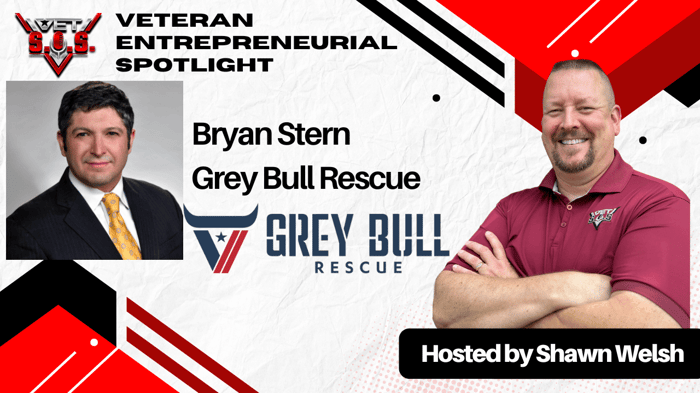Finding Mission, Purpose, and Identity After Military Transition: A Conversation with Mike Schindler
Introduction
 Mike Schindler
Mike SchindlerMilitary transition is a journey that many veterans struggle with, as they leave behind the structure, mission, and identity that defined their lives for years. The VET S.O.S. podcast recently featured an insightful conversation with Mike Schindler, founder and CEO of Operation Military Family Cares. Schindler, a Navy veteran, author, and leadership expert, shared his personal journey, the challenges veterans face in transition, and how his organization helps service members rediscover their purpose beyond the uniform.
In this episode, hosts Shawn and Keith dive deep into Mike’s military transition story, his work in the veteran space, and the critical role of mentorship and community in achieving success after service.
The Challenge of Military Transition
Transition from the service to civilian life is not always straightforward. Many veterans, like Schindler, find themselves adrift, struggling to redefine their purpose and identity. Schindler recalls his own difficult journey after leaving the Navy. He initially expected to continue his service career but found himself instead selling TVs at Circuit City—a stark contrast to the high-stakes responsibilities he once carried.
“I was just doing cool stuff, and now I’m selling TV sets?” Schindler recalled. “Is this really my life?”
He bounced through 14 jobs in three years, searching for something that would provide him with the same sense of mission and camaraderie he had in the Navy. It wasn’t until he found strong mentorship that he was able to realign his career path and personal mission.
Key Takeaway: Veterans must recognize that military transition is a process, not a one-time event. Without preparation, mentorship, and a clear vision, many will struggle to find their footing.
Mentorship and Finding Purpose in Military Transition
One of the key elements in Schindler’s transition was mentorship. He emphasized how important it was to seek guidance and learn from those who have successfully navigated their own transitions.
“Mentorship is huge,” he said. “Having someone who can see things that you don’t, who can guide you and push you forward, is invaluable.”
The hosts resonated with this point, reflecting on their own experiences and the necessity of surrounding oneself with the right people. The conversation shifted toward the importance of purpose—something many veterans struggle to redefine post-military.
Schindler breaks down purpose into four key layers:
Spiritual Purpose – A deeper connection to something greater than oneself, whether it’s faith, philosophy, or a personal belief system. This provides a foundational sense of direction and motivation.
Social Purpose – The intersection of one’s skills, passions, and what the world needs. This is where veterans can find meaningful employment or service work.
Connected Purpose – A community or tribe where veterans can give and receive value, fostering a sense of belonging.
Sacrificial Purpose – Giving back to those who cannot repay you. Service members are often drawn to roles that involve mentorship, advocacy, or social impact.
Schindler encourages veterans to explore these four layers deeply, rather than jumping into the first available job post-military.
Key Takeaway: Purpose is multifaceted. Veterans must take time to explore different areas of life where they can find fulfillment rather than rushing into a job that doesn’t align with their values and strengths.
Building a New Mission Through Operation Military Family
Recognizing the challenges of military transition, Schindler founded Operation Military Family Cares (OMFC), an organization dedicated to helping veterans and their families navigate their next chapter successfully.
OMFC provides a structured approach to helping veterans identify their mission, purpose, and career paths. Schindler describes it as a holistic service that doesn’t just focus on employment but on aligning veterans with careers that fit their personal and professional aspirations.
“Our hook is that we’re the match.com for employment,” Schindler said. “But we’re not just looking at resumes. We start with the individual—what they want, who they are—and then we help them find the best culture fit.”
OMFC also provides mentorship, coaching, and training programs, ensuring that veterans aren’t just placed into jobs but into roles that help them thrive after transition.
Key Takeaway: Organizations like OMFC offer more than just job placement—they provide veterans with the tools, mentorship, and structure to rediscover themselves and find meaningful opportunities post-military.
The Importance of Community and Network During Military Transition
The conversation also touched on how crucial it is for veterans to surround themselves with the right people. Schindler warns against falling into negative circles that reinforce bad habits or stagnant mindsets. Instead, he encourages veterans to be intentional about the communities they engage with.
“Your network determines your net worth,” he stated. “Who you surround yourself with matters more than you think.”
Keith echoed this sentiment, emphasizing that many veterans unintentionally isolate themselves, making military transition harder than it needs to be. Having the right tribe—a support system that challenges, uplifts, and holds one accountable—is crucial to long-term success.
Key Takeaway: Veterans should actively seek out positive, growth-oriented communities that align with their values and aspirations. Isolation and negative influences can derail progress in military transition.
Final Thoughts: Don’t Drown in the Sea of Military Transition
As the episode wrapped up, Schindler left listeners with a powerful call to action. He urged veterans to take charge of their military transition by investing in their self-discovery and reaching out for help when needed.
“There are resources available,” Schindler said. “We charge corporations $7,500 per person for the same services we offer veterans for free. If you’re struggling, reach out.”
His message was clear: No veteran should feel alone or without direction. Military transition is tough, but with the right support system, clarity, and action plan, every veteran can find a fulfilling post-service life.
Shawn and Keith reinforced the podcast’s mission, reminding veterans to not drown in the sea of military transition—grab the VET S.O.S. lifeline.
For those interested in learning more about Operation Military Family Cares, visit https://operationmilitaryfamily.com/ or reach out to Mike Schindler directly via text at 206-795-5890.
Follow VET S.O.S.
VET S.O.S. is committed to providing valuable conversations and insights for veterans navigating military transition. Follow us on YouTube, Spotify, Apple Podcasts, Reads Across America Radio, and Parade Deck to stay up-to-date on upcoming episodes.
Stay connected, stay informed, and most importantly—find your purpose beyond the uniform.






